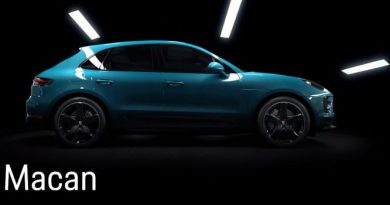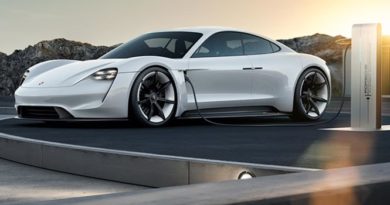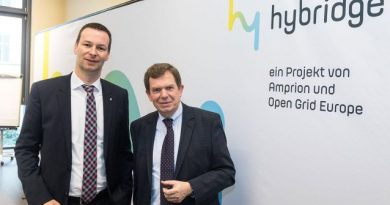Volkswagen Lets its Autonomous EV Charging Robots Loose
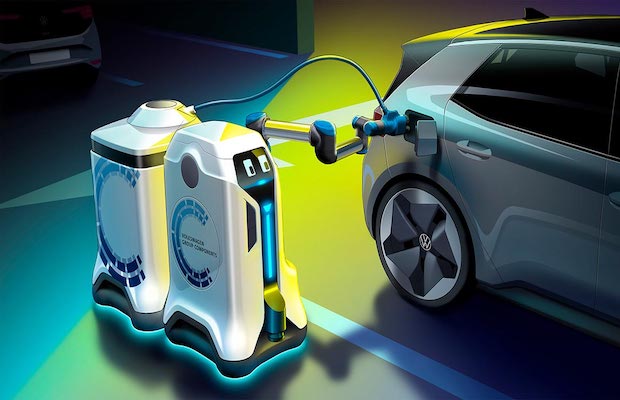
The Volkswagen Group has provided a glimpse into the future in which the search for charging stations for electric vehicles (EV) comes to an end. The Volkswagen Group Components’ mobile charging robot takes over this task – and drives to the electric vehicle completely autonomously.
After it is started via app or V2X communication, the mobile robot drives itself to the vehicle that needs charging and communicates with it. From opening the charging socket flap to connecting the plug to decoupling – the entire charging process occurs without any human interaction.
The mobile robot brings a trailer in the form of a mobile energy storage device to the vehicle and connects them; it then uses this energy storage device to charge the battery of the electric vehicle. The mobile energy storage device stays with the vehicle during the whole charging process. The robot, in the meantime, charges other electric vehicles. Once the charging service is complete, the robot collects the energy storage device and brings it back to the charging station.
Mark Möller, head of development at Volkswagen Group Components said that the mobile charging robot will spark a revolution when it comes to charging in different parking facilities, such as multi-storey car parks, parking spaces and underground car parks because it brings the charging infrastructure to the car and not the other way around. With this, the firm is making almost every car park electric, without any complex individual infrastructural measures.
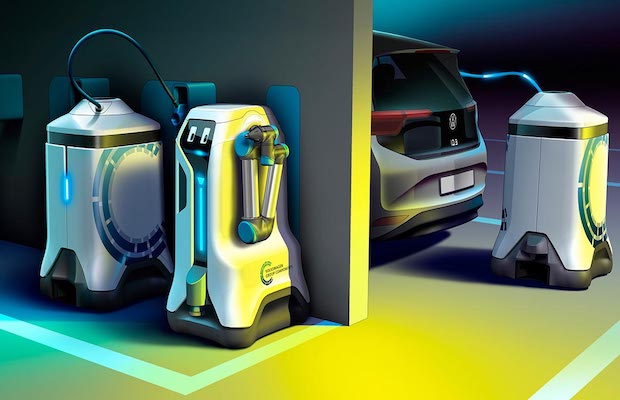
“It’s a visionary prototype, which can be made into reality quite quickly if the general conditions are right.” the group is also researching different approaches to the assembly of charging infrastructure and has already developed several successful products. The flexible quick charging station and DC wall boxes are already part of a future charging family.
The prototype consists of a compact, self-driving robot as well as flexible and agile energy storage devices, also known as battery wagons. When fully charged, these are equipped with an energy content of around 25 kWh each. A charging robot can move several battery wagons at the same time. When called via the app or V2X communication, it brings the energy storage device to the electric vehicle and connects them both autonomously. With its integrated charging electronics, the energy storage device allows for DC quick charging with up to 50 kW on the vehicle.
The robot, which can drive autonomously, is fitted with cameras, laser scanners and ultrasonic sensors. The combination of these systems not only allows the robot to carry out the charging process completely autonomously but also to move around freely in the parking area, to recognise possible obstacles and to react to these. Depending on the size of the parking area or the underground car park, several charging robots can be employed simultaneously so that several vehicles can be attended to.

